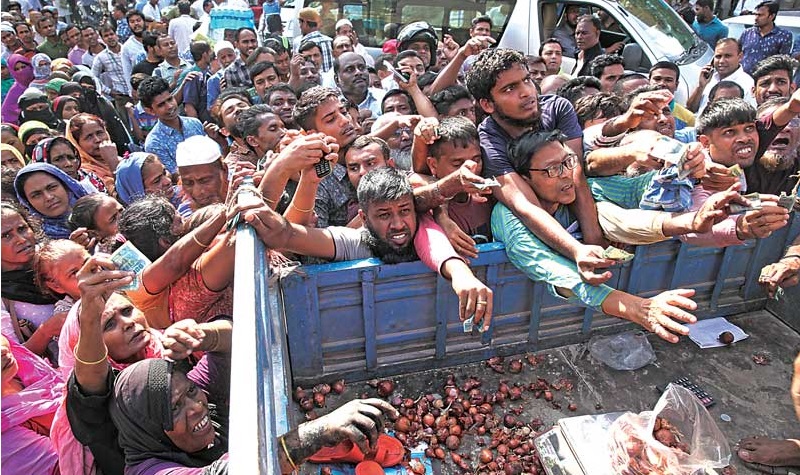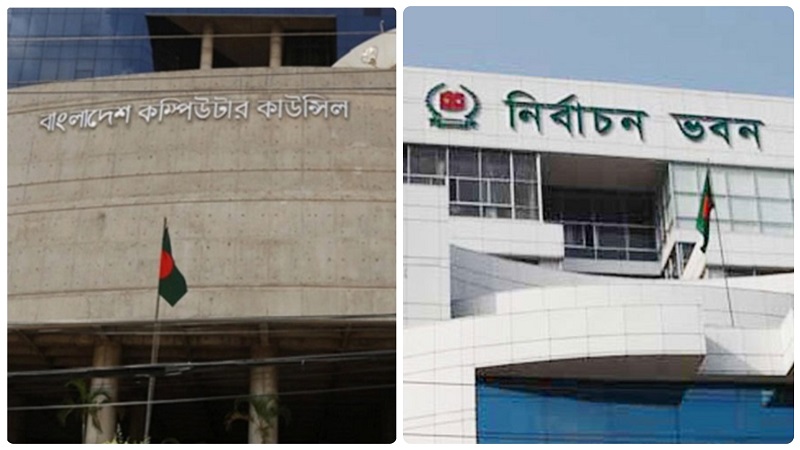The poor and low-income people suffered throughout the year 2022 due to surging prices of food and other essentials.
A continued spiral of rice and atta prices in particular multiplied the sufferings of the poor and the low-income people as their buying capacity fell gradually.
Market experts and economists said that a large proportion of people were forced to compromise their nutrition intake in 2022 because of the high prices.
They said that consumers with limited purchasing power cut food items like meat, chicken, eggs and fish from their daily menu due to the uncontrolled food inflation.
Fixed-income people are still compromising their protein intake and it would negatively impact public health.
Food items, including rice, atta, lentil, chicken, edible oil, milk and sugar, were very costly on the local market throughout the year.
According to government data, the price of atta increased by more than 70 per cent over the year, edible oil by 23 per cent, red lentil by 20 per cent, fish by 33 per cent, powdered milk by 40 per cent and sugar by 45 per cent.
Although the prices of chicken and eggs have decreased recently, the prices of these items remained abnormally high during the March–October period of 2022, official data showed.
The price of broiler chicken topped Tk 200 a kilogram while egg price went up to Tk 65 a hali (four pieces) in the period.
‘The soaring prices of food items put the low-income people into serious difficulties throughout 2022 and they were forced to cut back on their consumption,’ Consumers Association of Bangladesh president Ghulam Rahman told on Tuesday.
Although the government has taken some food-friendly programmes for the poor, those do not cover all the needy people while low-income people were also forced to compromise the quality of whatever food they were able to buy, he said.
According to data of the Bangladesh Bureau of Statistics, the monthly inflation rate rose to an 11-year high at 9.52 per cent in August.
Food inflation reached 9.94 per cent in August, with the BBS recording the indicator at 9.98 per cent in rural area and at 9.87 per cent in urban area.
The latest BBS data showed that food inflation was at 7.29 per cent throughout the country in December.
The BBS has been facing criticism from economists for using 2005–06 as the base year to calculate the sensitive data on the price of essentials.
Former research director of the Bangladesh Institute of Development Studies M Asaduzzaman said that the government data showed that food inflation eased slightly in December but, he added, a 7.29 per cent inflation cannot ease the daily life of poor and fixed-income people.
‘People are still making compromise on their nutrition intake and the situation is not likely to improve shortly,’ he said.
Usually, food price hike creates many crises for the low-income people as they have to spend a very large portion of their income to buy foods, Asaduzzaman said.
Such high spending on foods, he went on to say, may cause their children to drop out of schools, increasing the number of early marriages.
Despite government claims that the country has been producing surplus rice the prices of the staple food has been increasing unusually since 2020, making it difficult for the poor and the low-income people to maintain their families.
The price of rice increased by nearly 5 per cent in 2022 and the coarse variety of the item sold for Tk 46–52 a kilogram in the capital on Tuesday, according to the Trading Corporation of Bangladesh.
TCB data showed that the fine variety of miniket sold for Tk 75–80 a kilogram and Najirshail for Tk 80–90 a kilogram on the day in the city.
Unpackaged atta sold for Tk 64–65 a kilogram while packaged atta sold for Tk 70–75 a kilogram in the city on Tuesday.
Unpackaged refined sugar sold for Tk 110 a kilogram and the packaged one for Tk 115 a kilogram in the city on the day.
The fine variety of red lentil sold for Tk 140 a kilogram on in the city.
‘Our family has, meanwhile, become almost vegetarian so that we can manage two meals a day,’ Saidul Islam, a security guard in the city, told New Age.
He further said that beef, mutton and fish had long become luxury for them.
According to Khaleda Islam, director of the Institute of Nutrition and Food Science at Dhaka University, price hike of food items affects poor people disproportionately as they have to spend a large share of their income to buy foods.
‘There must be many negative effects of food price hike on the poor people and society as well but data are not available on the adversity of recent high prices of daily essentials,’ she said.
Khaleda also pointed out that low-income people had decreased their intake of protein for a certain period due to the price hike of broiler chicken and eggs while the prices of the items decreased recently.













